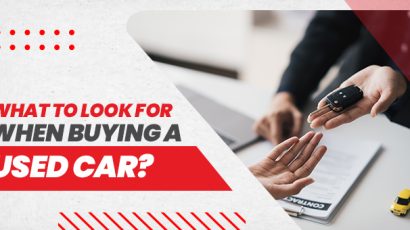
Buying a used car is a strategic financial decision for many, considering the rising cost of living. With a vast array of choices available, finding the perfect vehicle can be exciting. However, the used car market also presents potential pitfalls for unwary buyers. Therefore, to steer clear of trouble and ensure a smooth buying experience, it’s crucial to be aware of common mistakes.
Thus, we will discuss the most common mistakes to avoid in this article while searching for the best-used car to buy, giving you the information you need to make a confident and well-informed choice.
1. Diving Headfirst: Lack of Research and Budgeting
Car Knowledge is Power: Before setting foot on a dealership lot or looking online, invest time in researching different car models. Take into account elements such as vehicle size, fuel efficiency, safety ratings, and frequent maintenance needs. Online resources like SBT Japan provide valuable insights into used car pricing and reliability.
Know Your Budget: Equally important is establishing a realistic budget. You should account for not just the purchase price but also recurring costs such as fuel, insurance, and future repairs. Additionally, to anticipate monthly payments and prevent overextending your finances, use online vehicle payment calculators.
2. Falling in Love at First Sight: Rushing the Process
Don’t Be Blinded by Shine: A car’s sleek exterior can be captivating, but resist the urge to commit based solely on appearance – schedule test drives for several vehicles that meet your criteria. As a result, you can make a comparison and a more informed decision.
Take it for a Spin: A thorough test drive is essential. Pay attention to handling, braking, acceleration, and any unusual noises. Furthermore, the vehicle must be evaluated in a variety of driving situations, including highways and city streets. Lastly, imagine yourself using the car for your everyday needs.
3. Financing Faux Pas: Ignoring Financing Options
Pre-approval is Key: Don’t rely solely on dealership financing. Obtain pre-approval for a loan from your bank or credit union first. It offers you negotiating power and assures that you receive a competitive interest rate.
Beware the Monthly Payment Trap: Don’t get fixated solely on the monthly payment. Focus on the total cost of the car, including interest charges. A lower monthly payment might translate to a longer loan term and, ultimately, higher overall costs.
4. Skipping the Mechanic’s Inspection: A Costly Omission
A Second Opinion Saves Money: Never underestimate the value of a professional mechanic’s inspection. Schedule an independent pre-purchase inspection at a trusted repair shop. This can uncover hidden problems and potential repair costs, allowing you to renegotiate the price or walk away if necessary.
Be Wary of Dealer Inspections: While dealerships may offer inspections, a neutral third party provides an unbiased assessment. So, if you can do a third-party inspection, it would help you gain better insight.
5. History is Everything: Ignoring the Vehicle History Report
The Car’s Past Matters: Obtain a vehicle history report from a reputable source like Carfax or AutoCheck. These reports can reveal accidents, odometer rollbacks, major repairs, and outstanding liens on the vehicle. Moreover, a clean report provides peace of mind, while a troubled history allows you to adjust your offer or walk away entirely.
6. Negotiation Nightmares: Leaving Money on the Table
Do Your Research: Be armed with knowledge of the car’s fair market value based on research. This empowers you to negotiate effectively and avoid overpaying.
Don’t Be Afraid to Walk Away: If the seller isn’t budging on a price that you deem unreasonable, don’t hesitate to walk away. There will be other opportunities, and you deserve to get a fair deal.
7. Emotional Rollercoaster: Letting Emotions Cloud Judgment
Stay Objective: The excitement of finding a potential car can cloud your judgment. Therefore, maintain a level head and focus on the car’s condition, price, and suitability for your needs. Additionally, don’t be pressured into a rushed decision.
8. Paperwork Blunders: Not Understanding the Fine Print
Read Before You Sign: Before signing anything, take the time to check any papers properly. Furthermore, make sure you comprehend the conditions of the transaction, warranty information, and any financing contracts. Above all, do not be afraid to ask clarifying questions if anything is unclear.
Beyond the Basics: Additional Tips for Savvy Used Car Buyers
While the core principles of best used cars to buy remain constant, there are additional strategies you can employ to become an even more informed and empowered buyer. Here are some advanced tips:
Get Savvy with VIN Decoding: The Vehicle Identification Number (VIN) holds a wealth of information about a car’s history. Websites like the National Insurance Crime Bureau (NICB) offer free VIN lookups that can reveal salvage titles, theft records, and previous damage.
Embrace Technology: There are numerous smartphone apps designed to assist with buying used cars. These apps can help you scan VINs, estimate repair costs, and even haggle with sellers.
Consider Independent Mechanics: While a pre-purchase inspection is crucial, some mechanics specialize in specific car makes and models. Their in-depth knowledge of a particular car’s common problems can be invaluable.
Factor in Future Costs: Look beyond the immediate purchase price. Examine the automobile you are considering’s usual maintenance schedule and possible repair expenses. This will allow you to estimate long-term ownership costs more accurately.
Don’t Be Afraid to Ask Questions: A good seller should be transparent and willing to answer your questions. Ask about the car’s service history, any accidents, and the reason for selling.
Wrapping Up: A Smooth Ride Awaits
All things considered, you may confidently navigate the used automobile market by avoiding these typical mistakes. You may easily find a trustworthy used automobile that fits your budget if you do your homework, set a reasonable budget, and pay close attention to details.
Remember, the process should be empowering and enjoyable. Take your time, prioritize your needs, and don’t be afraid to walk away from a deal that doesn’t feel right. With the right approach, you’ll find the best used cars to buy to get you where you need to go for years to come.











